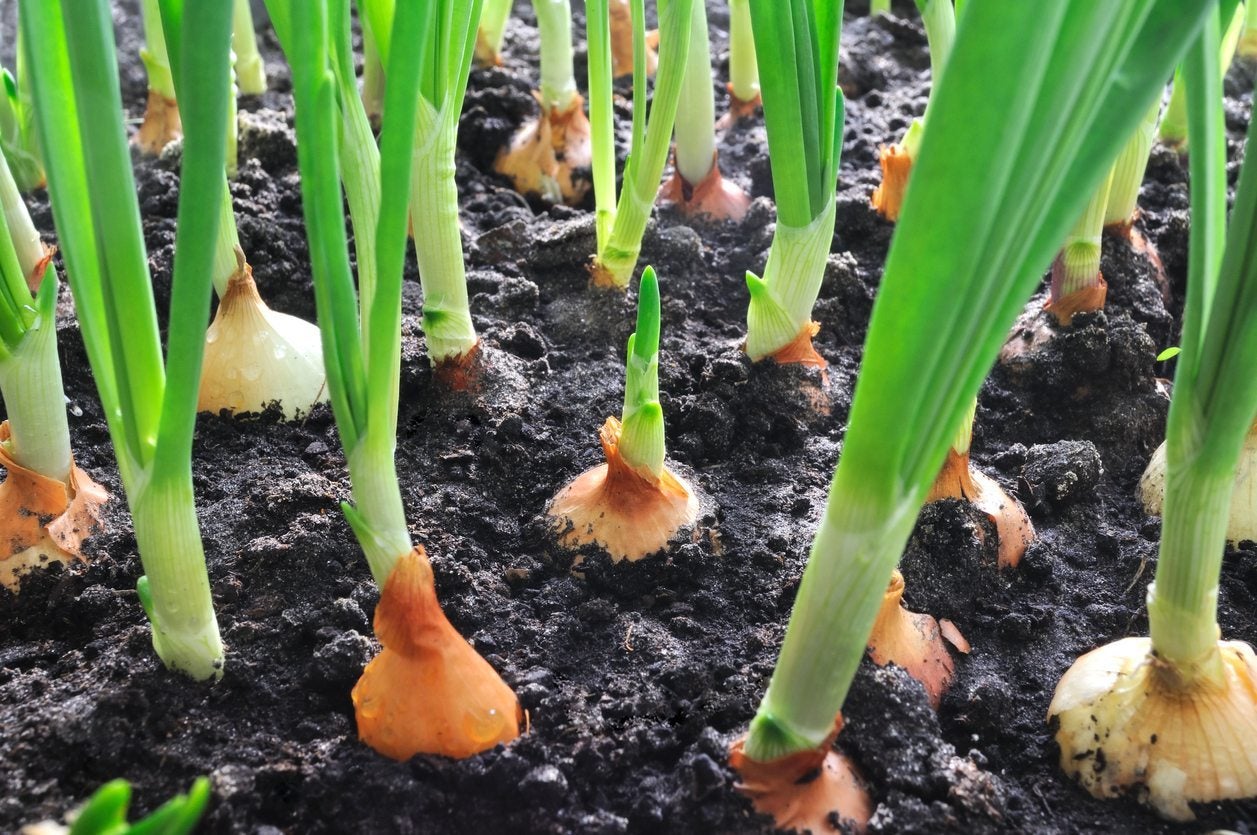
All onions are not created equal. Some prefer longer days with cooler weather while others prefer shorter days of heat. That means that there’s an onion for nearly every region, including hot weather onions – onions suited for USDA zone 9. What onions grow best in zone 9? Read on to find out about onions for zone 9.
About Zone 9 Onions
Onions feature prominently in almost every cuisine. Members of the lily family, Amaryllidaceae, onions are close relatives to leeks, shallots, and garlic. Bulbing onions likely arose from the region of the world now known as Pakistan and have been an important food source since the time of the ancient Egyptians, around 3,200 BC. Onions were later brought to the New World by the Spaniards. Today, most folks probably have onions in some food item we eat every day, albeit it may be onion powder. Onions are divided up into two categories and are relegated to these categories by virtue of day length. Long day onion varieties quit forming tops and begin to bulb when the length of the day reaches 14 to 16 hours. These types of onions do best in the northern states. Then there are the short-day onion varieties that thrive when there is only 10 to 12 hours of daylight. When looking for onions to grow in zone 9, look for short day varieties. Compared to their long day counterparts, short day onion varieties are comprised of a higher concentration of water vs. solid fiber so they do not store as well and should be eaten when fresh.
What Onions Grow Best in Zone 9?
Gardeners in zone 9 should be on the lookout for short day varieties such as Grano, Granex, and other similar hybrids such as Texas SuperSweet and Burgundy. Granex comes in both yellow and white varieties. They are sweet Vidalia types of onion and are the earliest maturing variety available. Yellow Granex cultivars include Maui and Noonday, while White Granex is known as Miss Society. Texas SuperSweet is a jumbo to colossal globe shaped onion. Another early maturing variety that is suited to zone 9 gardeners. It is highly disease resistant and stores better than other types of short-day onions. Lastly, another onion for zone 9 gardeners is an old gardening favorite is the White Bermuda onion. Mild onions, White Bermudas have thick, flat bulbs that are best eaten fresh.
Growing Onions in Zone 9
Prep the bed by working 2 to 4 inches (5-10 cm.) of compost or well-rotted manure into the area along with 1 to 2 pounds (1.5-1 kg.) of a complete fertilizer per 100 square feet (9 sq. m.). Sow seeds for short to intermediate day length onions in mid to late October, directly into the garden. Cover the seeds with ¼ inch (1 cm.) of soil. The seeds should sprout within seven to ten days: thin plants at this time. For super-duper huge onion bulbs, thin the seedlings so they are at least 2 to 3 inches (5-8 cm.) apart to allow for bulb growth. You may also set out transplants in January if you haven’t directly sown. Thereafter, side dress the onions with a nitrate-based fertilizer rather than a sulfate based. Onions need lots of moisture as the bulb forms, but less as they approach maturity. Keep the plants watered with an inch or so of water (2.5 cm.) per week depending upon the weather but lessen the amount of irrigation as the plants near harvest.
Sign up for the Gardening Know How newsletter today and receive a free copy of our e-book "How to Grow Delicious Tomatoes".

Amy Grant has been gardening for 30 years and writing for 15. A professional chef and caterer, Amy's area of expertise is culinary gardening.
